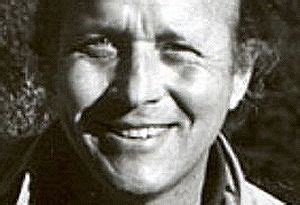A Quote by Stacy Schiff
Nonfiction writers are the packhorses of literature. We're meant to carry the story. If we can make it up and down the mountain by a reliable if not scenic route, we have delivered. Technique is optional.
Related Quotes
When you're researching things that have happened, the clear narrative arc is not there already. This is the problem of writing nonfiction for me - writing nonfiction which is about serious subjects and has serious political and social points to make, yet which is meant to be popular to a degree - what happens when the facts don't fit a convenient narrative arc? I guess that for a lot of nonfiction writers that is a central challenge.
The word 'creative' refers simply to the use of literary craft in presenting nonfiction—that is, factually accurate prose about real people and events—in a compelling, vivid manner. To put it another way, creative nonfiction writers do not make things up; they make ideas and information that already exist more interesting and, often, more accessible.
In climbing, being first-rate is part of the whole enterprise. The important climbers want to be the first man up the mountain, the one who put up the first route. You're usually only remembered if you put up the first route on a very important climb. The route might even be named after you. That's a kind of glory.
Perhaps the most reliable route to meaning and joy, to plunging below the surface and seeking more than the superficiality of material ambition, is connection with people, places, ideas and issues. Of these, the most important are people and relationships. And the most reliable route to relationships is conversation.
Writers imagine that they cull stories from the world. I'm beginning to believe that vanity makes them think so. That it's actually the other way around. Stories cull writers from the world. Stories reveal themselves to us. The public narrative, the private narrative - they colonize us. They commission us. They insist on being told. Fiction and nonfiction are only different techniques of story telling. For reasons that I don't fully understand, fiction dances out of me, and nonfiction is wrenched out by the aching, broken world I wake up to every morning.
Fiction seems to be more effective at changing beliefs than nonfiction, which is designed to persuade through argument and evidence. Studies show that when we read nonfiction, we read with our shields up. We are critical and skeptical. But when we are absorbed in a story, we drop our intellectual guard. We are moved emotionally, and this seems to make us rubbery and easy to shape.






































